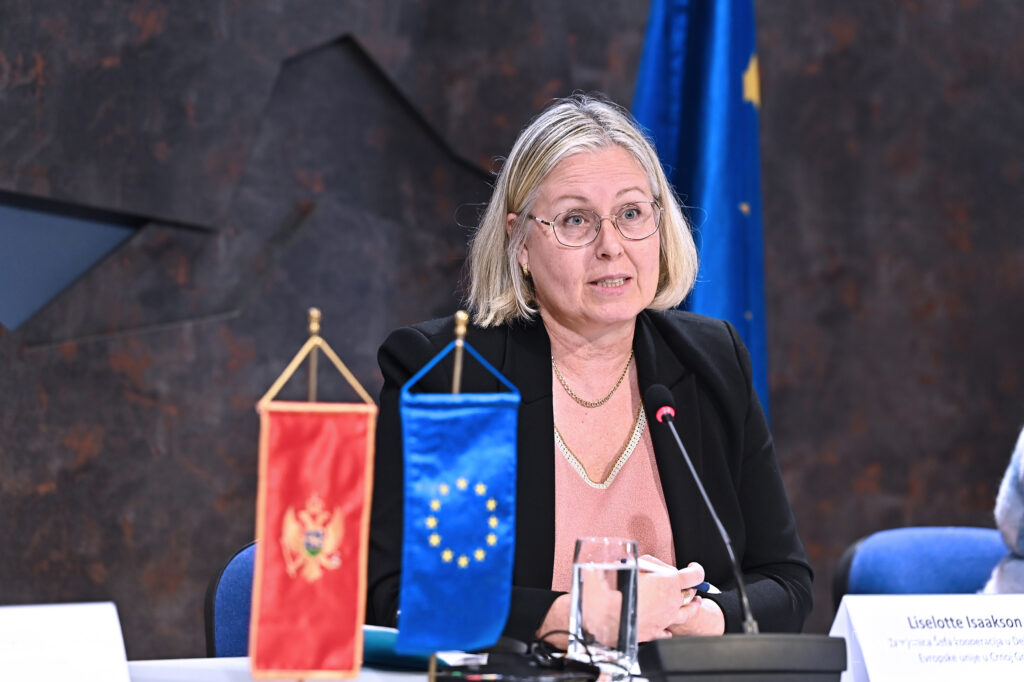Thirty-six-year-old Stanislava Radulović is a dentist from Podgorica. Thanks to the EU’s support through grants for self-employment, today Stanislava has a modern dental clinic.
This young dentist is one of more than 460 beneficiaries who received support through the project “Support for self-employment,” financed by the EU and implemented by the Employment Institute of Montenegro.
“This was a great incentive and a wind at my back for opening my business,” said Stanislava in an interview for Europe House.
This project was implemented within the framework of the €18 million programme of the European Union and Montenegro for employment, education, and social protection.

Liselote Isakson, Deputy Head of Cooperation in the EU Delegation to Montenegro, said that the aim of this support was to encourage entrepreneurship as a driver of economic growth and promote entrepreneurial culture, motivating particularly vulnerable groups such as women, young people, and long-term unemployed people.
“We believe that this project has not only benefited the end users but has also helped the Employment Agency to improve its capacity and establish a solid mechanism for managing, monitoring, and evaluating grants for self-employment. I encourage you to use the knowledge and experience gained through this Programme to further build your capacities for the future implementation of EU pre-accession programmes,” said Isakson.
The joint programme contributed to the strengthening of intersectoral cooperation, but also, most importantly, to strengthening the capacity of institutions for creating and implementing policies and approaching EU standards, pointed out the Minister of Labor and Social Welfare, Admir Adrović.

“This is supported by the fact that over 85% of the total value of the Programme has been successfully implemented,” added Minister Adrović.
Director of the Employment Institute of Montenegro, Gzim Hajdinaga, said that the three-year project “Grant Programme for Self-Employment” is an example of dedicated work and the result of exceptional and intensive cooperation between Montenegro and the European Union.
He emphasised that this contributed to the reduction of the gray economy and poverty, as well as to the increase in employment.
“Entrepreneurship was encouraged and preconditions were created for the creation of new jobs. I will especially emphasise that more than 95% of the beneficiaries of the grant are still in business. At the same time, it is an indicator that we have implemented an effective pilot project, which resulted in the decision to grow into a regular measure of active employment policy, which will actively stimulate and provide support for the labor market policy of Montenegro,” said Hajdinaga.
The EU-Montenegro programme for employment, education, and social protection, worth €18 million, ended on 31 December 2022 and is a donation from the EU within the framework of pre-accession support (IPA) to Montenegro.
Montenegro’s participation in the Programme is €2.7 million.
